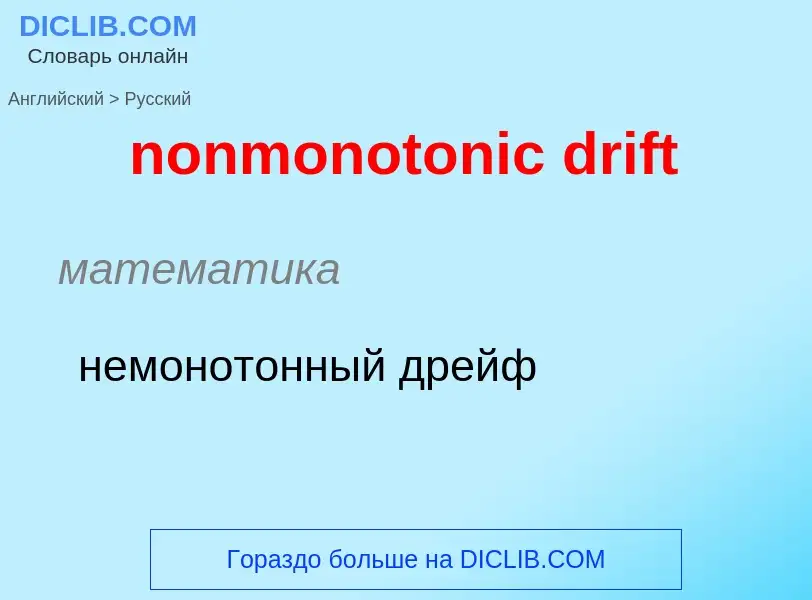Перевод и анализ слов искусственным интеллектом ChatGPT
На этой странице Вы можете получить подробный анализ слова или словосочетания, произведенный с помощью лучшей на сегодняшний день технологии искусственного интеллекта:
- как употребляется слово
- частота употребления
- используется оно чаще в устной или письменной речи
- варианты перевода слова
- примеры употребления (несколько фраз с переводом)
- этимология
nonmonotonic drift - перевод на русский
математика
немонотонный дрейф
строительное дело
скорость неконтролируемого медленного изменения (напр. параметров среды)
математика
случайный дрейф
случайное смещение
Определение
Википедия
A non-monotonic logic is a formal logic whose conclusion relation is not monotonic. In other words, non-monotonic logics are devised to capture and represent defeasible inferences (cf. defeasible reasoning), i.e., a kind of inference in which reasoners draw tentative conclusions, enabling reasoners to retract their conclusion(s) based on further evidence. Most studied formal logics have a monotonic entailment relation, meaning that adding a formula to a theory never produces a pruning of its set of conclusions. Intuitively, monotonicity indicates that learning a new piece of knowledge cannot reduce the set of what is known. A monotonic logic cannot handle various reasoning tasks such as reasoning by default (conclusions may be derived only because of lack of evidence of the contrary), abductive reasoning (conclusions are only deduced as most likely explanations), some important approaches to reasoning about knowledge (the ignorance of a conclusion must be retracted when the conclusion becomes known), and similarly, belief revision (new knowledge may contradict old beliefs).

